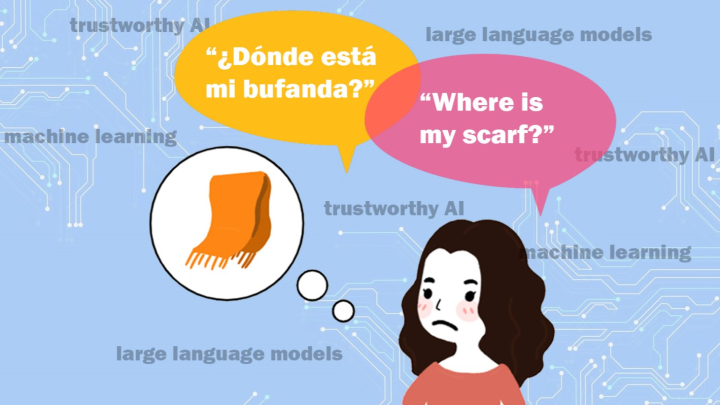Novel Study Explores the Useability and Efficacy of AI Translations for Diverse Populations
Researchers in the Institute for Trustworthy AI in Law & Society (TRAILS) are working with a local interactive museum to explore how people from different backgrounds rely on imperfect language translations generated by artificial intelligence (AI).
The project, known as “Lost in Translation,” is part of a series of ongoing research efforts coordinated by the Language Science Station at Planet Word, an immersive venue in downtown Washington, D.C., that is focused on curating a love of language.
It joins University of Maryland computational linguists and data scientists with other researchers to better understand people’s use of—and level of trust in—AI tools used for language translations.
The project is led by Marine Carpuat, an associate professor of computer science, and Ge Gao, an assistant professor in the College of Information.
Both Carpuat and Gao are active in TRAILS, noting that the opportunity to gather real-time data at Planet Word falls directly in line with several TRAILS research thrusts that include creating technical solutions that build trust in AI, and empowering users to better understand AI systems.
“Being able to do this at Planet Word is really great because we have a huge diversity of people to interact with,” says Carpuat.
For the Lost in Translation study, participants are given a digital tablet that displays a virtual avatar of Sophia, a Spanish-only speaking visitor to Planet Word who has lost her scarf. Participants are tasked with relying on AI translation-generated options—four options are given for each sequence—to communicate with Sophia and help her to find the missing scarf.
The UMD study is measuring not only if the correct choices are being selected, but the level of confidence participants have in their selections.
The researchers expect to gather robust data from their interactive exhibit, given that people of all ages are participating, some of whom are native speakers of Spanish, with other participants being bilingual, and still others with very little knowledge of the language.
The entire process takes only a few minutes to complete and is designed to feel more like a game than a scientific study, says Charlotte Vaughn, an assistant research professor at UMD who is also active in TRAILS.
Click HERE to read the full article
The Department welcomes comments, suggestions and corrections. Send email to editor@cs.umd.edu.
